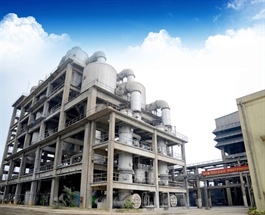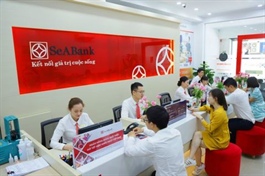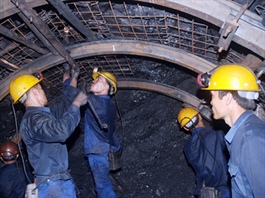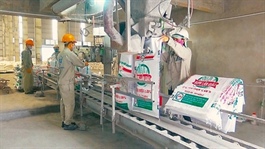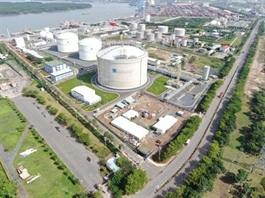Non-core ventures brighten business outlook (MHC)
Non-core ventures brighten business outlook (MHC)
Non-core investments have left a healthy mark on the general business picture in the first half of this year amidst the myriad hardships.

In the second quarter of this year, a number of businesses, such as Licogi 14 JSC, Danang Housing Investment Development JSC, and MHC JSC, used a large part of their assets to improve their financial picture significantly.
These profit figures are based on the firms’ financial statements, as they have yet to sell the stock to realise the profit.
At Licogi 14, the company amassed $567,800 in Q2 revenue, down 82.8 per cent on-year, and $217,390 in post-tax profit. This contrasts starkly with the $1.42 million loss seen one year ago.
The company’s income rose by over 466 per cent to reach $236,950, whereas its expenses shed 98.6 per cent on-year to just $36,080.
The company revealed that its sharp drop in expenses was attributed to a considerable decrease in the sum put into the provisioning fund. The figure was a mere $86,950 in Q2 of this year, compared to $2.53 million one year ago.
In the first half of this year, Licogi 14 posted $1.92 million in revenue, down 53 per cent on-year, and $360,860 in post-tax profit. Again, a marked improvement over the $1.03 million in losses for the same period last year.
At Danang Housing, the company’s Q2 revenue climbed to $4.23 million, compared to a mere $48,690 12 months ago – up 86.9 times or 8,690 per cent on-year. Its post-tax profit reached $2.66 million, a healthy jump over the $4.96 million loss one year ago.
Income from non-core businesses might put pressure on firms' development.
In H1 this year, the company raked in $13.5 million in revenue and $7.27 million in post-tax profit. H1/2022 witnessed $4.13 million in losses.
By the end of Q2, its stock portfolio value came to $16 million, accounting for 26.6 per cent of total asset value, in which the stock principal value during the period rose from $13.4 million to $15.9 million.
At MHC, the company registered $210,430 in revenue in Q2 of this year, up 10.7 per cent, and $2.01 million in post-tax profit. In the same period last year, it lost $2.5 million.
In H1, MHC’s revenue shed 8 per cent on-year to $385,650, and post-tax profit reached $433,900. This contrasts dramatically with the $2.5 million losses of one year ago.
The company reported that in H1, its income reached $1.52 million, mostly coming from stock investments.
By contrast, its expenses saw a drop thanks to taking back $377,390 from the provisioning fund. The company had put as much as $3.3 million into the fund over the same period last year due to a sharp decline in its stock price.
Unlike these above firms, Dabaco Vietnam Group's profit this year came from its real estate investments instead of its core livestock breeding business.
Accordingly, in Q2 Dabaco counted $151 million in revenue – showing a 17 per cent jump – and $14.2 million in post-tax profit – up 22.8 times on-year.
In H1 of this year, the company’s revenue rose slightly to reach $251.5 million, and its post-tax profit came to $265,200, down 73.4 per cent on-year.
In terms of the company's gross profit structure in H1, the profit from selling its products shed 29.6 per cent on-year to $18.9 million, that from supermarket, hotel, and restaurant trading rose 10.3 per cent to $2.6 million, and construction and real estate ventures jumped 292.4 per cent to $10.7 million.
This means that in H1, Dabaco’s core business dropped, and its profit mostly came from real estate ventures.
These cases show that when core businesses are in the doldrums, firms have tried to make best use of their available capital sources for non-core investments, such as stock and real estate ventures, helping to generate a spike in their profits.
This, however, might put pressure on the firms’ development, as Licogi 14, Danang Housing, and MHC have incurred heavy losses several times in the past when the stock market plunged.




